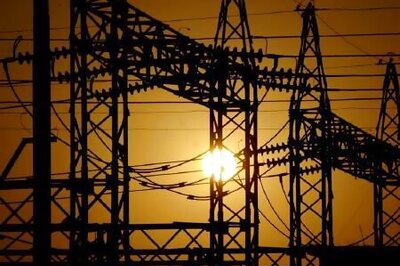
views
WASHINGTON: The number of Ukrainians living in poverty has grown by 1.8 million since 2020, bringing the total to about 29% of the population as Russia’s 2022 invasion continues to ravage the country’s economy, the World Bank said in a report.
The situation would be much worse if Ukraine had not received substantial foreign budget support to pay old-age pensions and salaries for teachers, doctors and others, according to Arup Banerji, the World Bank’s regional director for Eastern Europe.
“If international partners, especially the U.S., had not crowded in resources specifically tailored to these social expenditures, then there would have been three million more people in poverty,” he told Reuters in an interview.
The World Bank report, based on monthly phone surveys of up to 2,000 households, estimated that some 9 million Ukrainians were living in poverty last year. The country’s total population is now estimated to be around 32 million.
The increase in poverty was driven by declining employment, with more than a fifth of adults who were working before the war having lost their jobs, it said.
It noted that nearly one-quarter of Ukrainians surveyed did not have enough money to buy food at some point in June 2023, although a rebound in economic growth and slowing inflation had helped to improve food security in the second half of the year.
Banerji said U.S. passage of fresh Ukraine funding after months of delay was “fantastic” news which would help ensure Ukraine’s continued ability to keep up payments for salaries, pensions and social assistance.
The report showed that 85-92% of health clinics in Ukraine were still fully operational in 2023, despite ongoing Russian attacks.
It said at least 89% of children aged 6-18 also remained in school, although in areas facing active hostilities 72% of those students were attending school online.
The survey also showed that 97% of old-age pensions and 85% social assistance transfers were paid on time, a key factor in preventing even more from falling into poverty. Pensions and other social assistance had helped compensate for job losses in vulnerable households, it found.
Banerji said Ukraine’s biggest challenge remained security and ending the war, but Ukrainian officials had done a great job running the economy under the circumstances.
“There can be no economic prosperity or economic growth without physical security,” he said, adding, “But I’ve never seen a government that has done so much with so little.”
Disclaimer: This post has been auto-published from an agency feed without any modifications to the text and has not been reviewed by an editor


















Comments
0 comment